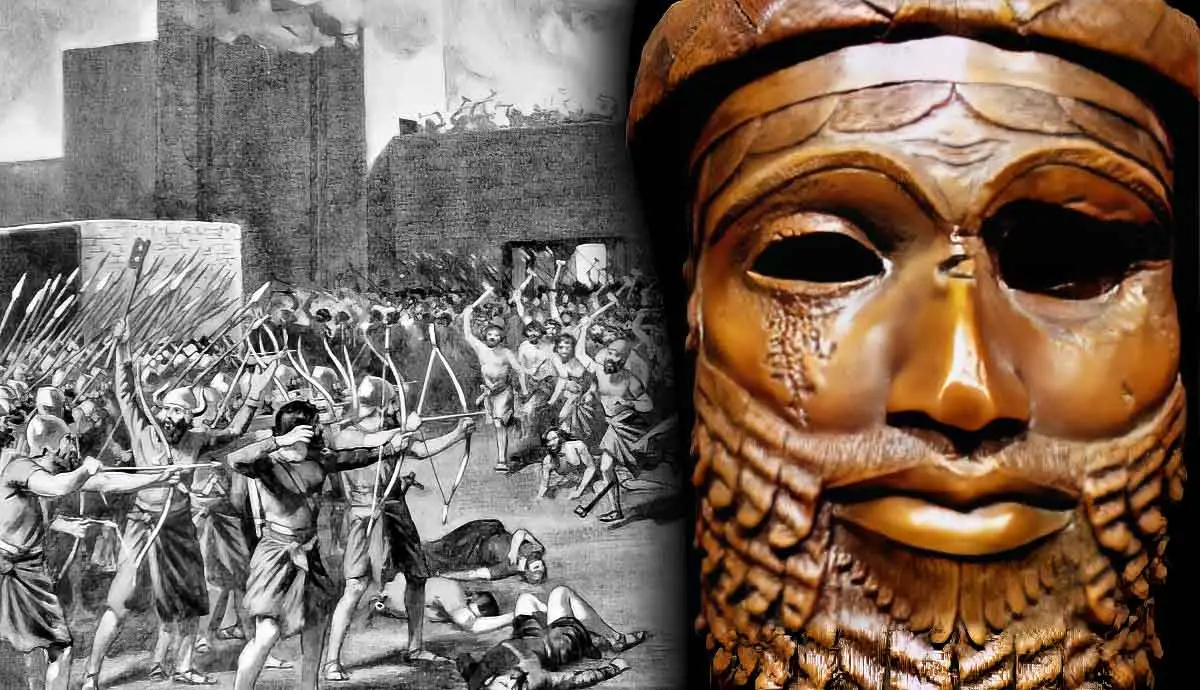The fertile crescent, cradled between the Tigris and Euphrates rivers, witnessed the rise and fall of numerous civilizations. Among them, the Akkadian Empire stands out as the first true multi-ethnic empire in history, leaving an indelible mark on the Mesopotamian landscape. This article delves into the captivating story of the Akkadians, exploring their origins, the reign of the legendary Sargon the Great, the empire’s territorial expansion, cultural contributions, and the reasons for its eventual decline.
From City-States to Empire: The Rise of Akkad
While the exact location of the city of Akkad remains shrouded in mystery, scholars believe it flourished in southern Mesopotamia around 2334 BCE. Prior to the rise of the Akkadians, the region was dominated by independent Sumerian city-states constantly vying for power and influence. The Akkadians, a Semitic people, gradually rose to prominence, assimilating with the Sumerians and adopting their advanced cuneiform writing system.
Sargon the Great: A Legendary Figure and Unifying Leader
The rise of the Akkadian Empire is inextricably linked to Sargon the Great, a mysterious and almost mythical figure. Legends depict him as a foundling raised by a gardener, who later rose through the ranks of the military to become king of Akkad. Sargon’s military prowess and strategic brilliance propelled Akkad to regional dominance. He embarked on a series of successful conquests, uniting Mesopotamia under a single ruler for the first time. His empire stretched from the Mediterranean Sea in the west to the Zagros Mountains in the east, encompassing territories previously held by Sumerian city-states like Ur, Uruk, and Lagash.
A Golden Age of Expansion and Consolidation
Under Sargon and his successors, the Akkadian Empire flourished. Trade flourished along established routes, connecting Mesopotamia with neighboring regions. Standardized weights and measures facilitated commerce, while advancements in agriculture boosted food production to support the growing population. The empire embarked on ambitious public works projects, including the construction of canals, irrigation systems, and fortifications.
Cultural Legacy: A Blend of Influences
The Akkadian Empire did not erase Sumerian culture; instead, it absorbed and blended it with its own traditions. Akkadian adopted the cuneiform script, enriching it with new words and adapting it to their Semitic language. Akkadian literature drew inspiration from Sumerian myths and epics, while also developing its own literary canon. The Epic of Gilgamesh, a timeless tale of friendship, loss, and the quest for immortality, flourished during this period. The Akkadians were also skilled astronomers, meticulously recording celestial movements and laying the foundation for later Mesopotamian astronomical observations.
The Seeds of Decline: Internal Strife and External Threats
Despite its initial successes, the Akkadian Empire faced internal challenges. Rulers struggled to maintain control over the vast territories. Rebellions erupted in conquered provinces, testing the empire’s cohesion. External threats also emerged. The Gutians, nomadic tribes from the Zagros Mountains, gradually infiltrated Akkadian territories, weakening the empire from within.
Fall of the Akkadian Empire and Lasting Legacy
By 2154 BCE, the Akkadian Empire had crumbled under the combined pressures of internal rebellions and external invasions. However, its legacy endured. The Akkadian language continued to be used in scholarly and administrative circles for centuries after the empire’s downfall. The concept of a centralized empire served as a blueprint for future Mesopotamian empires, like the Babylonians and Assyrians. The Akkadians’ innovations in agriculture, trade, administration, and literature laid the groundwork for future civilizations in the region.
Conclusion: A Pivotal Chapter in Mesopotamian History
The Akkadian Empire marked a pivotal chapter in Mesopotamian history. Under the leadership of Sargon the Great, it established the first multi-ethnic empire in the region, ushering in a golden age of trade, cultural exchange, and technological advancements. Though short-lived, the Akkadian Empire’s legacy endured, shaping the political landscape, cultural identity, and intellectual pursuits of subsequent Mesopotamian civilizations.
